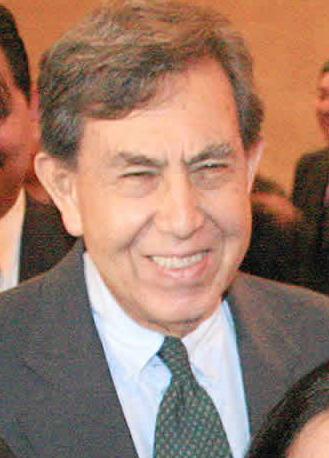|
XHCPBS-FM
XHCPBS-FM, known as ''La Voz de los Chontales'', is an indigenous community radio station on 98.7 FM broadcasting in Spanish, Chontal Maya (''yokot'an''), Ch'ol and Ayapa Zoque from Nacajuca in the Mexican state of Tabasco. The station will form part of the Indigenous Cultural Broadcasting System (SRCI), part of the National Institute of Indigenous Peoples (INPI). La Voz de los Chontales resumed broadcasting on February 28, 2020, after an earlier incarnation was shuttered in September 1989 for political reasons. History XENAC In 1982, XENAC-AM 1440 began broadcasting under the auspices of the National Indigenist Institute (INI). The station was part of a flurry of new indigenous radio openings in the early 1980s after the foundation of XEZV-AM in Tlapa de Comonfort, Guerrero, in 1979; XENAC was the second station established. At the time, XENAC broadcast with 500 watts and covered 47,000 listeners in seven municipalities. In the late 1980s, XENAC fell victim to a conc ... [...More Info...] [...Related Items...] OR: [Wikipedia] [Google] [Baidu] |
Sistema De Radiodifusoras Culturales Indígenas
The Sistema de Radiodifusoras Culturales Indígenas (SRCI; en, Indigenous Cultural Broadcasting System) is a state-owned network of radio stations in Mexico. The radio stations it operates are community radio stations that aim to serve different sectors of the country's indigenous peoples. Pursuant to Article 4 of the Constitution, their mission is to strengthen the multicultural nature of the nation by promoting the use of 31 indigenous languages. As the stations are owned by the federal government, they hold public concessions. History The SRCI began operations in 1979 with the launch of XEZV-AM, "La Voz de la Montaña", in Tlapa de Comonfort, Guerrero. The network was initially managed by the National Indigenist Institute (INI), an agency of the federal government In 2003, the INI was dissolved and replaced by the National Commission for the Development of Indigenous Peoples (CDI), which consequently assumed control over the network. The CDI was in turn replaced by the Natio ... [...More Info...] [...Related Items...] OR: [Wikipedia] [Google] [Baidu] |
Nacajuca
Nacajuca is a city in Nacajuca Municipality in the state of Tabasco, Mexico. It is part of the Chontalapa region in the north center of the state and a major center of Tabasco's Chontal Maya population. Although the local economy is still based on agriculture and livestock, oil production, handcrafts and some tourism are important aspects as well. The environment of the area is low-lying flat land susceptible to flooding including being hard hit by the 2007 Tabasco flood and more recent flooding in 2011. The city The city of Nacajuca is located in the north of the state of Tabasco, Mexico, in the Chontalpa Region, 26 km from the state capital of Villahermosa. It is the seat for the municipality of the same name with all governmental functions thereof. It also is the location for most state and federal buildings and services as well. Its main economic activities are commerce and agriculture. It has a population of about 8,200 people. The Parque Central Miguel Hidalgo (Miguel H ... [...More Info...] [...Related Items...] OR: [Wikipedia] [Google] [Baidu] |
Institutional Revolutionary Party
The Institutional Revolutionary Party ( es, Partido Revolucionario Institucional, ; abbr. PRI) is a political party in Mexico that was founded in 1929 and held uninterrupted power in the country for 71 years, from 1929 to 2000, first as the National Revolutionary Party ( es, Partido Nacional Revolucionario, PNR), then as the Party of the Mexican Revolution ( es, Partido de la Revolución Mexicana, PRM) and finally as the PRI beginning in 1946. The PNR was founded in 1929 by Plutarco Elías Calles, Mexico's paramount leader at the time and self-proclaimed (Supreme Chief) of the Mexican Revolution. The party was created with the intent of providing a political space in which all the surviving leaders and combatants of the Mexican Revolution could participate and to solve the severe political crisis caused by the assassination of President-elect Álvaro Obregón in 1928. Although Calles himself fell into political disgrace and was exiled in 1936, the party continued ruling Mexico u ... [...More Info...] [...Related Items...] OR: [Wikipedia] [Google] [Baidu] |
Radio Stations In Tabasco
Radio is the technology of signaling and communicating using radio waves. Radio waves are electromagnetic waves of frequency between 30 hertz (Hz) and 300 gigahertz (GHz). They are generated by an electronic device called a transmitter connected to an antenna which radiates the waves, and received by another antenna connected to a radio receiver. Radio is very widely used in modern technology, in radio communication, radar, radio navigation, remote control, remote sensing, and other applications. In radio communication, used in radio and television broadcasting, cell phones, two-way radios, wireless networking, and satellite communication, among numerous other uses, radio waves are used to carry information across space from a transmitter to a receiver, by modulating the radio signal (impressing an information signal on the radio wave by varying some aspect of the wave) in the transmitter. In radar, used to locate and track objects like aircraft, ships, spacecraft and ... [...More Info...] [...Related Items...] OR: [Wikipedia] [Google] [Baidu] |
International Mother Language Day
International Mother Language Day is a worldwide annual observance held on 21 February to promote awareness of linguistic and cultural diversity and to promote multilingualism. First announced by UNESCO on 17 November 1999, it was formally recognized by the United Nations General Assembly with the adoption of UN resolution 56/262 in 2002. Mother Language Day is part of a broader initiative "to promote the preservation and protection of all languages used by peoples of the world" as adopted by the UN General Assembly on 16 May 2007 in UN resolution 61/266, which also established 2008 as the International Year of Languages. The idea to celebrate International Mother Language Day was the initiative of Bangladesh. In Bangladesh, 21 February is the anniversary of the day when the people of Bangladesh (then East Pakistan) fought for recognition for the Bangla language. It is also celebrated in West Bengal, India. History 21 February was declared to be the International Mother L ... [...More Info...] [...Related Items...] OR: [Wikipedia] [Google] [Baidu] |
Pemex
Pemex (a portmanteau of Petróleos Mexicanos, which translates to ''Mexican Petroleum'' in English; ) is the Mexican state-owned petroleum company managed and operated by the Mexican government. It was formed in 1938 by nationalization and expropriation of all private oil companies in Mexico at the time of its formation. Pemex had total assets worth $101.8 billion in December 2019 and as of 2009 was Latin America's second largest enterprise by annual revenue, surpassed only by Petrobras (the Brazilian national oil company). The company is the seventh most polluting in the world according to ''The Guardian''. History Asphalt and pitch had been worked in Mexico since the time of the Aztecs. Small quantities of oil were first refined into kerosene around 1876 near Tampico. By the early 20th century, commercial quantities of oil were being extracted and refined by subsidiaries of the British Pearson and American Doheny companies and had attracted the attention of the Mexican ... [...More Info...] [...Related Items...] OR: [Wikipedia] [Google] [Baidu] |
Federal Telecommunications Institute
The Federal Telecommunications Institute ( Spanish: ''Instituto Federal de Telecomunicaciones''; abbreviated as IFT and incorrectly referred to as IFETEL) is an independent government agency of Mexico charged with the regulation of telecommunications and broadcasting services. It was formed on September 10, 2013, as part of larger reforms to Mexican telecom regulations, and replaced the Federal Telecommunications Commission (Cofetel). The current President of the IFT is Gabriel Oswaldo Contreras Saldívar. History On August 8, 1996, President Ernesto Zedillo created Cofetel, which originally was based in the tower of the Secretariat of Communications and Transportation. In 2013, President Enrique Peña Nieto created the IFT to replace Cofetel as part of the telecommunications reform package of the Pacto por México. The IFT is an autonomous federal agency that is responsible for the regulation of the use of spectrum, telecommunications and broadcasting networks and offerings, a ... [...More Info...] [...Related Items...] OR: [Wikipedia] [Google] [Baidu] |
US Dollar
The United States dollar (symbol: $; code: USD; also abbreviated US$ or U.S. Dollar, to distinguish it from other dollar-denominated currencies; referred to as the dollar, U.S. dollar, American dollar, or colloquially buck) is the official currency of the United States and several other countries. The Coinage Act of 1792 introduced the U.S. dollar at par with the Spanish silver dollar, divided it into 100 cents, and authorized the minting of coins denominated in dollars and cents. U.S. banknotes are issued in the form of Federal Reserve Notes, popularly called greenbacks due to their predominantly green color. The monetary policy of the United States is conducted by the Federal Reserve System, which acts as the nation's central bank. The U.S. dollar was originally defined under a bimetallic standard of (0.7735 troy ounces) fine silver or, from 1837, fine gold, or $20.67 per troy ounce. The Gold Standard Act of 1900 linked the dollar solely to gold. From 1934, its equi ... [...More Info...] [...Related Items...] OR: [Wikipedia] [Google] [Baidu] |
Arturo Núñez Jiménez
Arturo Núñez Jiménez (born 23 January 1948) is a Mexican politician affiliated with the PRD (formerly to the PRI) who served as Governor of Tabasco from 2013 to 2018. In January 1993 he was appointed to the Direction of the Federal Electoral Institute, where he was in charge of the elections of that year. He also served as Deputy during the LVII Legislature of the Mexican Congress representing Tabasco, where he was Coordinator of the PRI Legislative Group, and between 1998 and 1999 he was the President of the Chamber of Deputies. In 2005 he resigned his affiliation to the PRI and announced his candidature to the Senate now with the PRD. In September 2006 he took office as Senator of the LX and part of the LXI Legislatures of the Mexican Congress. In December 2011 he won the nomination to the Governature of Tabasco by the Progresist Movement Coalition, integrated by the PRD, the Convergence and the Labor Party and subsequently winning the election An election ... [...More Info...] [...Related Items...] OR: [Wikipedia] [Google] [Baidu] |
Party Of The Democratic Revolution
The Party of the Democratic Revolution (PRD, es, Partido de la Revolución Democrática, ) is a social democratic political party in Mexico. The PRD originated from the Democratic Current, a political faction formed in 1986 from the Institutional Revolutionary Party (PRI). The PRD was formed after the contested general election in 1988, which the PRD's immediate predecessor, the National Democratic Front, believed was rigged by the PRI. This sparked a movement away from the PRI's authoritarian rule. As of 2020, the PRD is a member of the Va por México coalition. Internationally, the PRD is a member of the Progressive Alliance. The members of the party are known colloquially in Mexico as ''Perredistas''. History Early origins Break from the PRI (1986–1988) The PRD has its origins with the leftist members of the PRI, Institutional Revolutionary Party. The PRI had dominated Mexican politics since its founding in 1929. In 1986, a group of PRI members – including Ifigen ... [...More Info...] [...Related Items...] OR: [Wikipedia] [Google] [Baidu] |



.jpg)

